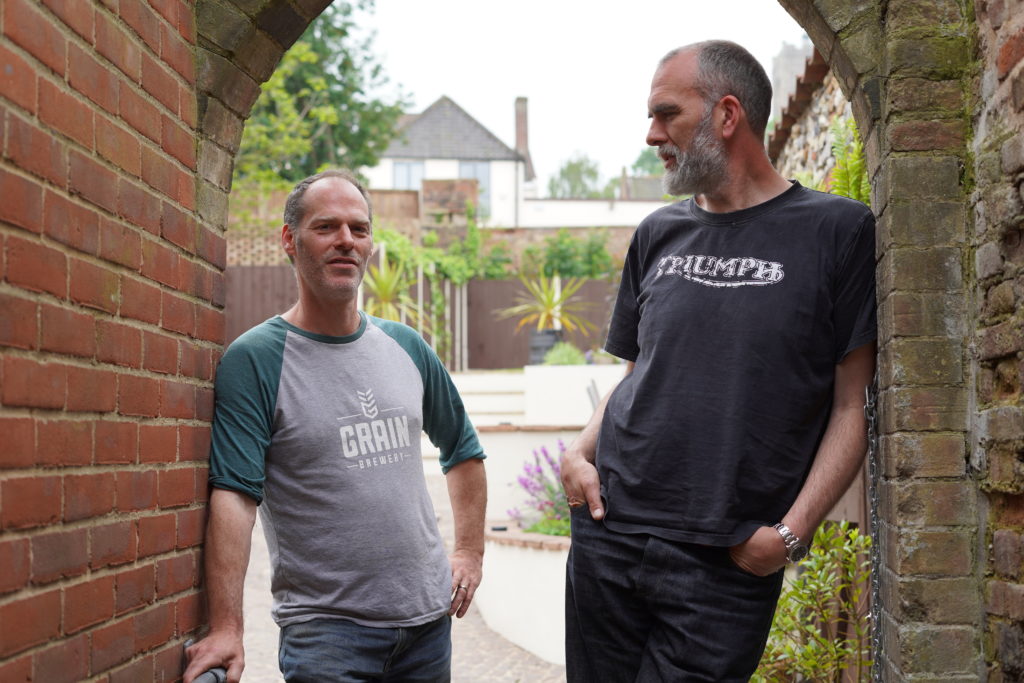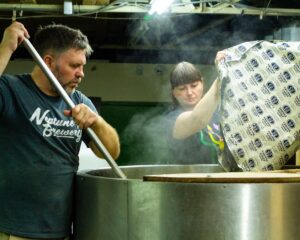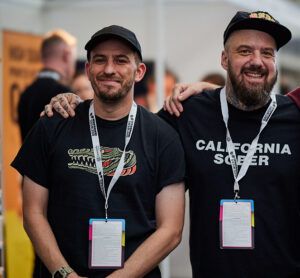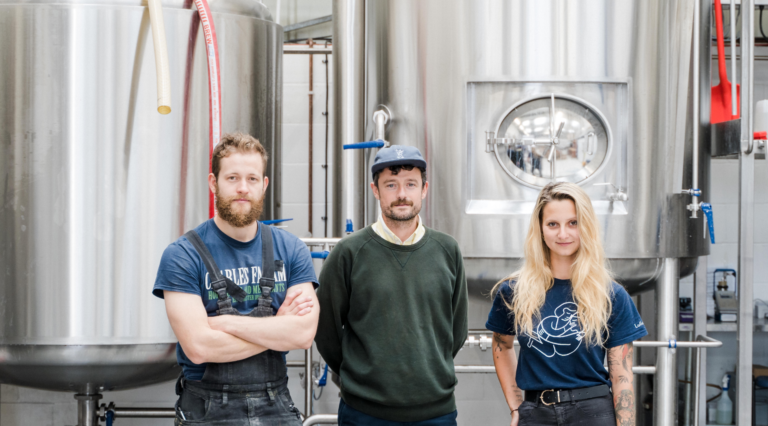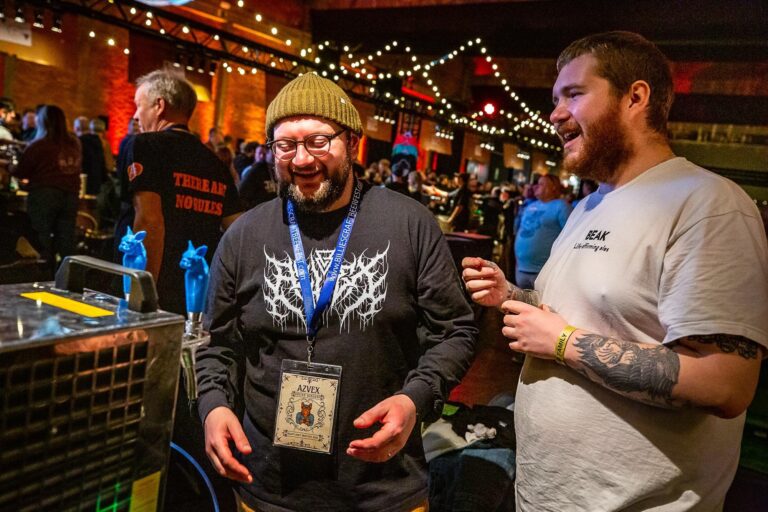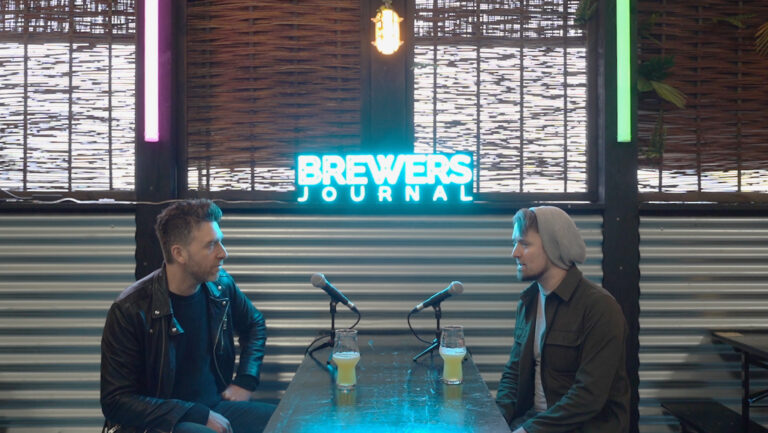Norwich City of Ale is a city-wide celebration of city pubs, local breweries and good beer. Founded in 2011, it’s an excellent way to take in meet the brewer events, tap takeovers, food pairing evenings, beer festivals and more, all in one city. It also encourages drinkers to visit many of the Norwich’s pubs, and that’s exactly what people are doing at The Plough on St Benedicts Street.
There’s a couple at the bar, both with well-kept, great-tasting pints of Oak, a 3.8% cask bitter from Grain Brewery. Lovingly placed next to those pints is what remains of a pork pie and the duo are capturing the vista with their camera phones to no doubt catalogue their visit to both the pub and city.
Snapping away, they captured the eye of Geoff Wright, co-founder of the brewery’s beer they’re enjoying.
“Look at those two. They’re taking a photo of something so simple as a beer with a pie. But seeing people in the pub, drinking your beer, and deeming it worthy enough to photograph? That builds me a little each and every time I see it,” he explains. “I don’t think I’ll every be fully proud of what I do, but that gives me something to improve upon. It makes everything worthwhile.”
It’s no surprise to see Grain Brewery beers on at The Plough, or other pubs for that matter. The Plough is one of four establishments Wright owns alongside business partner Phil Halls. Having a direct route to market is obviously a boon for any brewing business, but the irony of why they pursued the pub model in the first place isn’t lost on the duo.
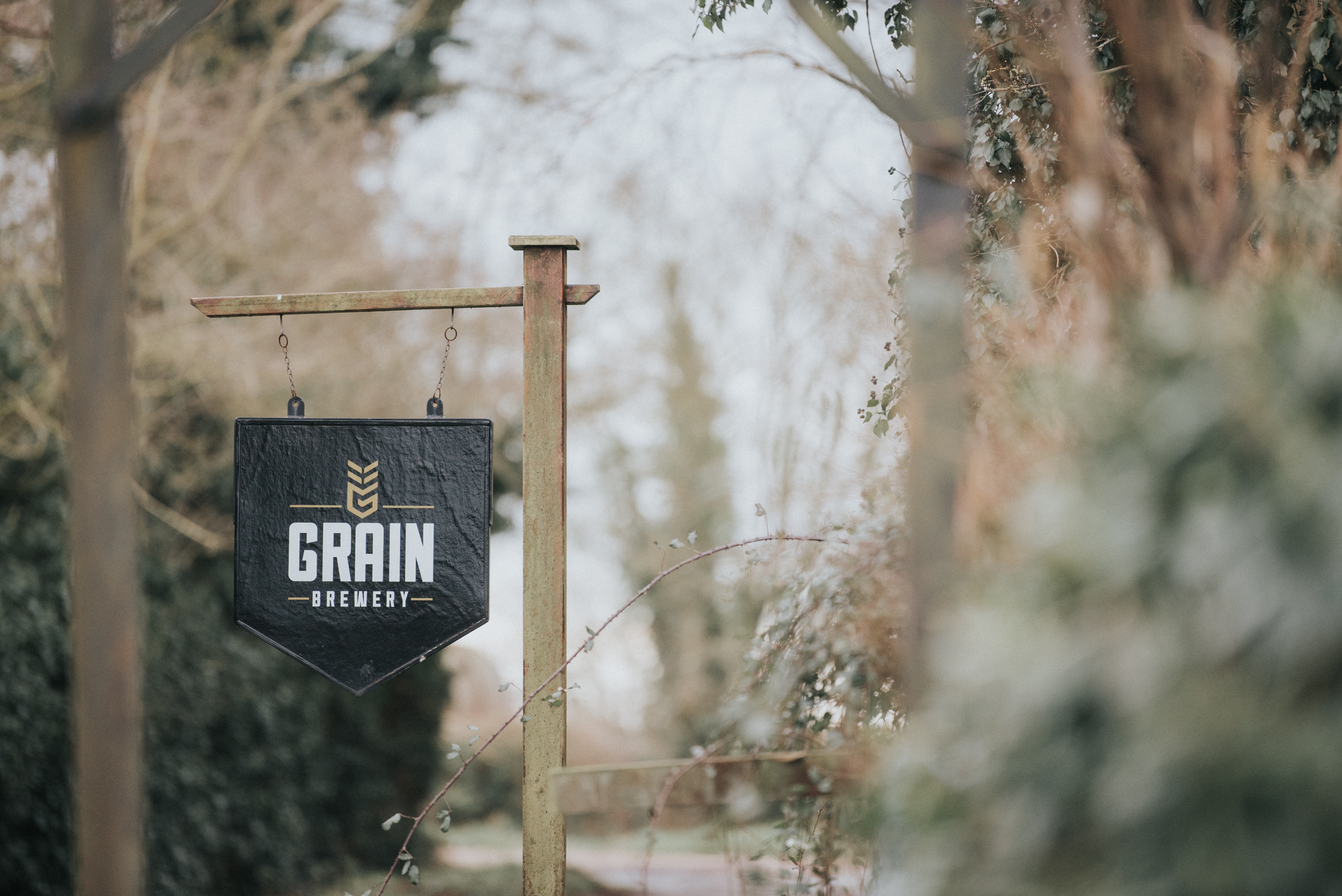
“Pubs weren’t always part of the plan,” he says. “Early on we knew we needed a retail outlet for the beer so we started with farmers markets. We did hundreds and hundreds of them. There were some good ones, and there were some really awful ones. They’d take up Sundays and they’d take up Bank Holidays, but it was all valuable cash coming into the business in those early days.”
He adds: “So when the idea of taking on The Plough came about in 2010 we thought: ‘Great, we can stop giving up our days off to do those markets!’.
“But instead of just giving up a day off, we’ve ended up giving up every day off because if we’re not tied to the brewery, it’s the pub side. Mental, isn’t it?”
Wright doesn’t pull punches on his outlook to life and business. His acerbic wit is both forthright and incisive. But it’s part of the reason why Grain Brewery is an operation that’s still going strong 13-years on.
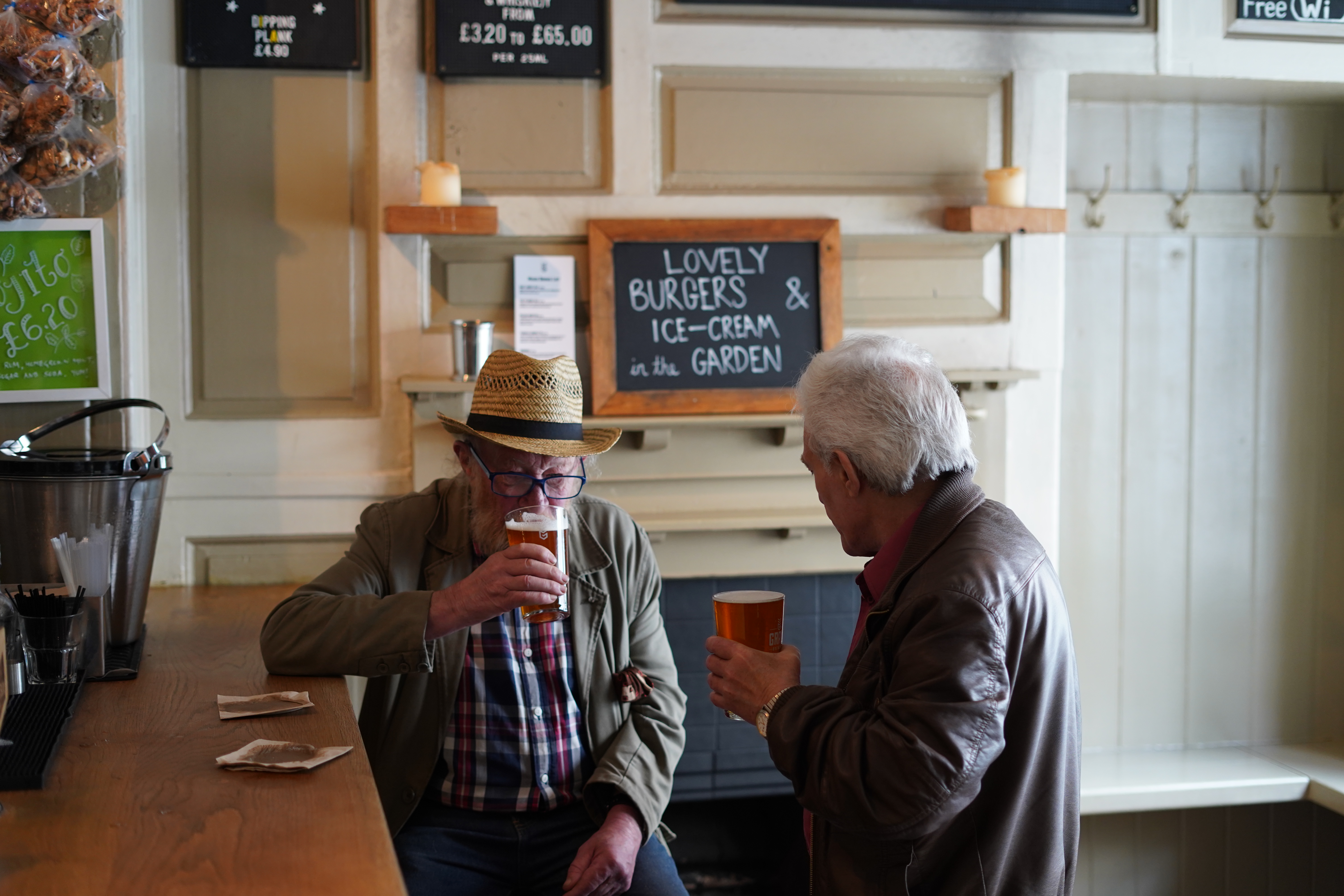
Business partner Halls, on the other hand, is softer in tone but no less driven. The duo had known each other through friendship circles from their teens. But career paths, as they do, diverged. At the time of Grain Brewery coming into being, Halls was in a publishing position in central Norwich while Wright was marketing manager at regional brewing giant Adnams.
“It was time for a change and Adnams itself has changed a great deal since the early 2000s, too. Back then they would never brew more than three beers at a time. Now you go into the taproom and there’s 12 beers on,” says Wright. “They weren’t overly bothered by the growth of microbreweries 10 or so years ago but that’s the way the brewery operates. They have a powerful confidence in what they do. Some would call it arrogance but either way, they’ve changed somewhat since then.”
“But let’s be clear, my plan has always been to start my own brewery and grow it to a size that would allow me to buy Adnams and close it down,” he laughs.
Rewind a few years and The Grain Brewery story started with the familiar tale of limited initial funds raised from the odd car sale and a re-mortgage.
“We scraped together just under £50,000 – a lot of money to us, but meagre funds as far as buying breweries go,” says Halls. “But we were able to buy and refurbish the five barrel starter brewery that had belonged to Castle Rock, along with a hundred plastic casks, and found the perfect site to house it, in the old dairy and barns at South Farm, in the Waveney Valley, Alburgh, Norfolk.”
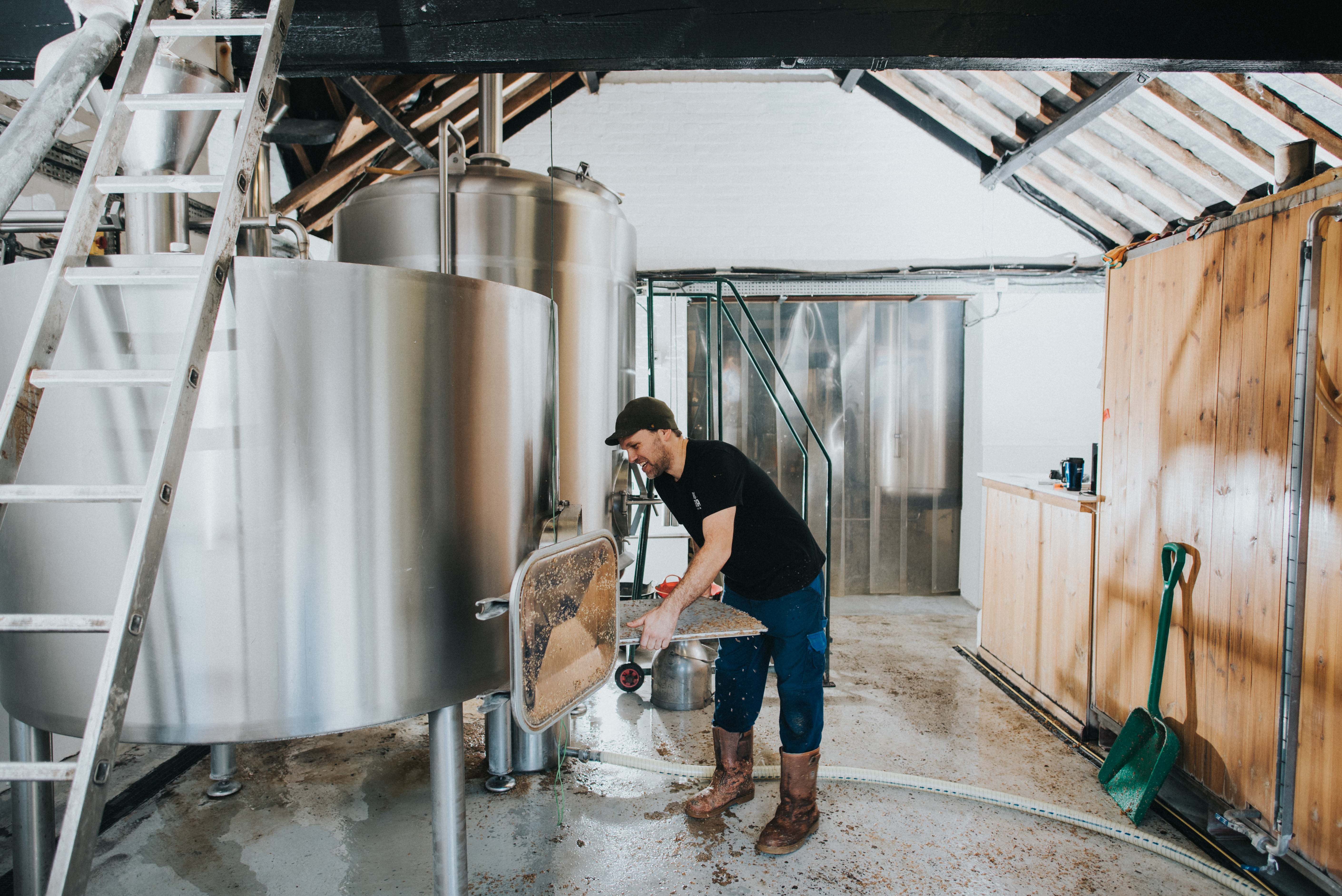
They taught themselves to brew with a few courses and a lot of trial and error with Halls lamenting the scarcity of information available back in 2005 compared to the wealth online and elsewhere today.
“Was the beer any good very early on? Probably not. It took until Gyle 007 to make something that was sellable. A pleasant, easy-drinking bitter that we could probably call an early iteration of our Oak beer,” he says.
Starting out, the duo’s inspirations were quite different. For Halls it was Thornbridge Jaipur and Dark Star Hophead, while Wright was fond of Wherry from Norfolk’s Woodforde’s Brewery.
“It was so light and hoppy compared to the beers I was brought up on such as Greene King IPA and Southwold Bitter from Adnams,” he recalls.
But, while both influences are evident in Grain Brewery’s beers, one thing binds them and that’s tying their output to a sense of place and heritage.
“Geoff has a talent for coming up with good ideas, and drawing on our location in the heart of Britain’s best barley growing land. With Maris Otter grown almost on our doorstep, he came up with the name Grain,” says Halls. “Simple, apt, and it gave us the chance to play around with wood themes, hence the tree-based names of many of our beers such as Lignum Vitae which means ‘Tree of Life’, and our wooden pump clips.”
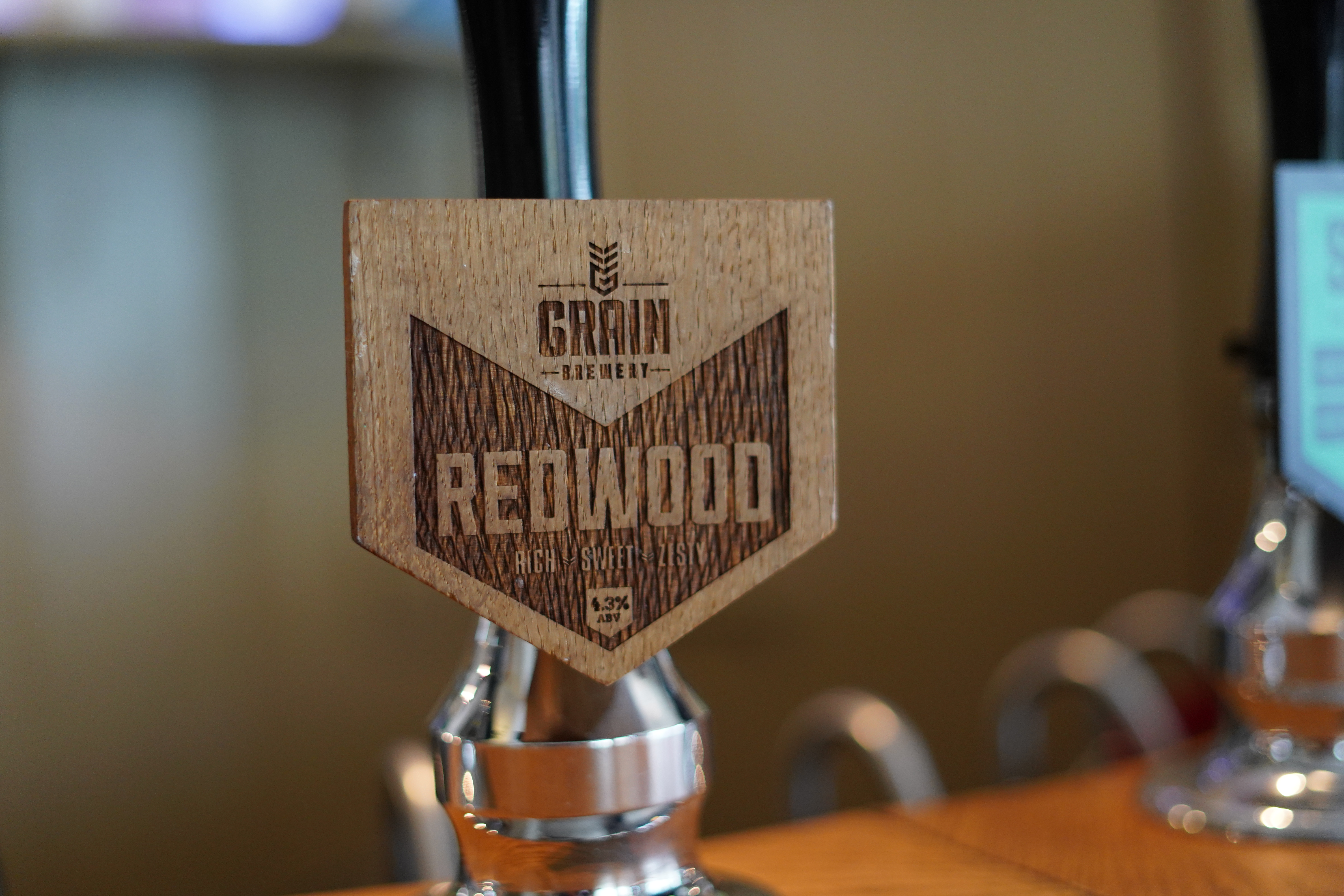
A lot of work went into developing the farm site in Alburgh. The team called upon friends, family and local farmers to help convert the buildings into anything slightly resembling a brewery. As time has gone on, Wright and Halls have added more beers to their portfolio and transformed their setup as demand dictated.
“We replaced the out-grown brew kit in 2012, with a shiny new, efficient, and purpose built brewery from Malrex Fabrications in Burton upon Trent, tripling our output, but still based at South Farm,” says Halls. “By expanding into neighbouring barns, we have added more fermenters and storage, and having dabbled with keg beer for a couple of years, we went into full keg production and built our lagering room in the old farm shoot room.”
The focus on lagering is something the duo take very seriously. Keg beers such as its Pilsener, Pale and Weizen are all given a wealth of tank time to ensure they are packaged in the best condition possible.
“Take the Pilsener, for example. Fermentation goes on for a minimum of four to six weeks. We chill to down to zero and carbonate at the same time. As each day passes, the beer becomes crisper, rounder, smoother. It improves all the time,” says Halls.
Grain has been kegging beers for a little more than two and a half years, something that is slowly encroaching onto its cask share. When cask accounted for 80% of output in 2017, that figured has dropped to 70% in 2018 to enable increases in keg output.
But as with anything the brewery does, everything is done slow and steady. It’s kegging more beers to increase its offering to existing customers that operate in Norfolk and as far south as Cambridge
“We want to have good relationships with existing companies rather than jeopardise them. We are bringing new people into the family as we go but we’ll never go outside of our comfort zone. It’s important to remain in control,” says Wright.
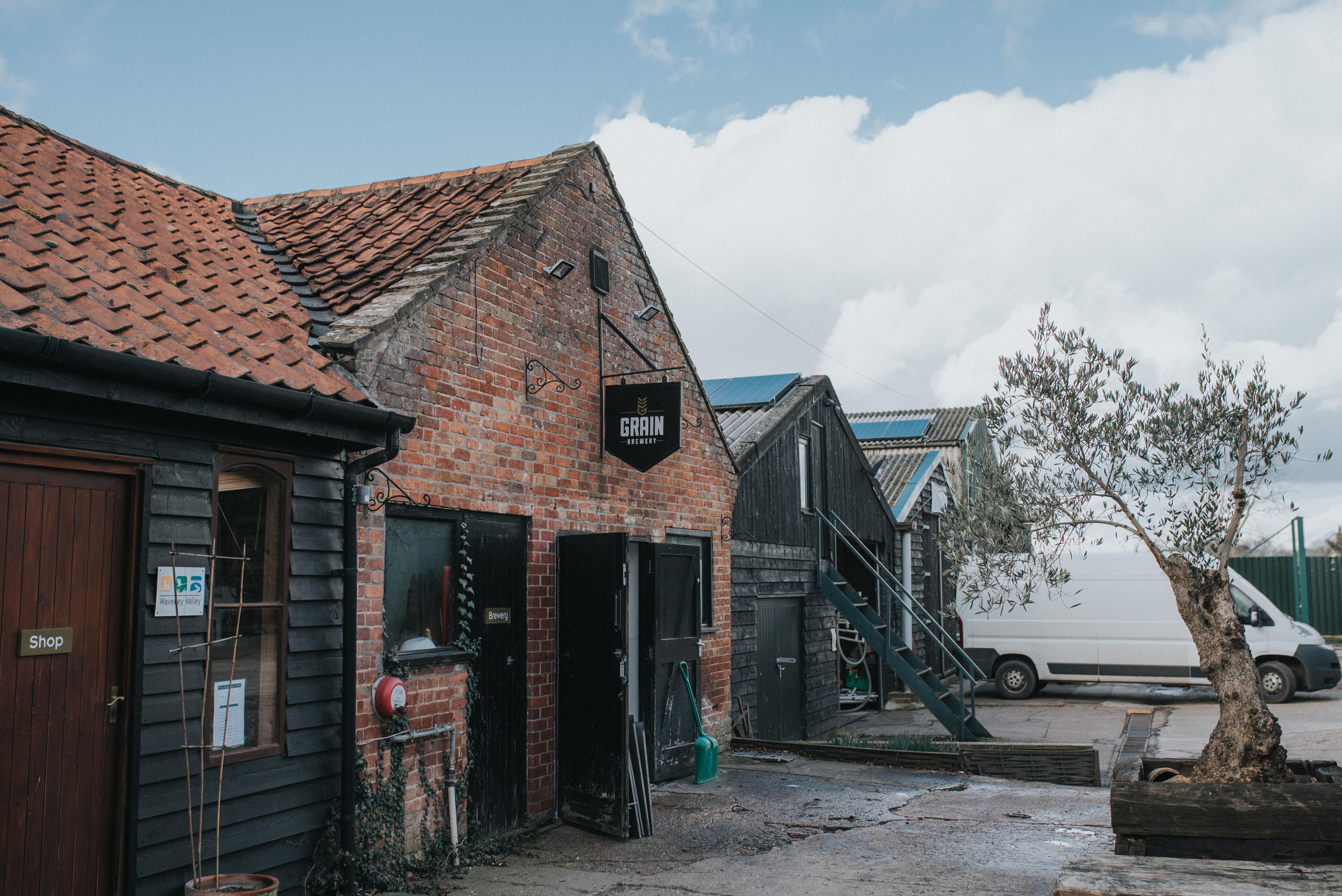
And while Grain dabbles in bottling and canning its beer, they are firm advocates of enjoying beer on tap in the pub environment.
“For me, beer is always best drunk in the pub. Of course, people can do whatever they like as it’s not for me to tell them but beer can come across as you intended it to in the pub,” says Wright.
“It also needs to be drunk responsibly, and consuming beer in a pub environment enables that. It gives us the control. I’m not saying you’re not allowed to drink at home and you have to come to the pub, because that’s obviously ridiculous, but I just believe it’s a better place for it.”
The team take great pride in their pubs. Complementing The Plough is The Cottage in Norwich, The Spread Eagle in Ipswich and Grain at The Corn Hall in Diss, Norfolk. They offer a considered beer range that extends to the wines and spirits on offer, too.
Just don’t tell Diageo that.
“Only yesterday I had a call from Diageo, I assume it was something GDPR related. They were updating details and the woman on the other end of the line was from the Guinness team,” says Wright. “She took the opportunity to promote the product but I had to stop her there, as we don’t sell any Diageo products at our pubs. She couldn’t believe and informed me that 75% of pubs sell Diageo products, so I said ‘test me!’. She ran through Smirnoff, Bailey’s, the lot. Each my response each time was ‘No, no, no’. She wasn’t happy.”
He adds: “Let me be clear, it’s not an actively anti-Diageo stance, I just know there are better products available. Whether that’s a better beer than Guinness or a better gin than Tanqueray. We can sell better. We can make better.”
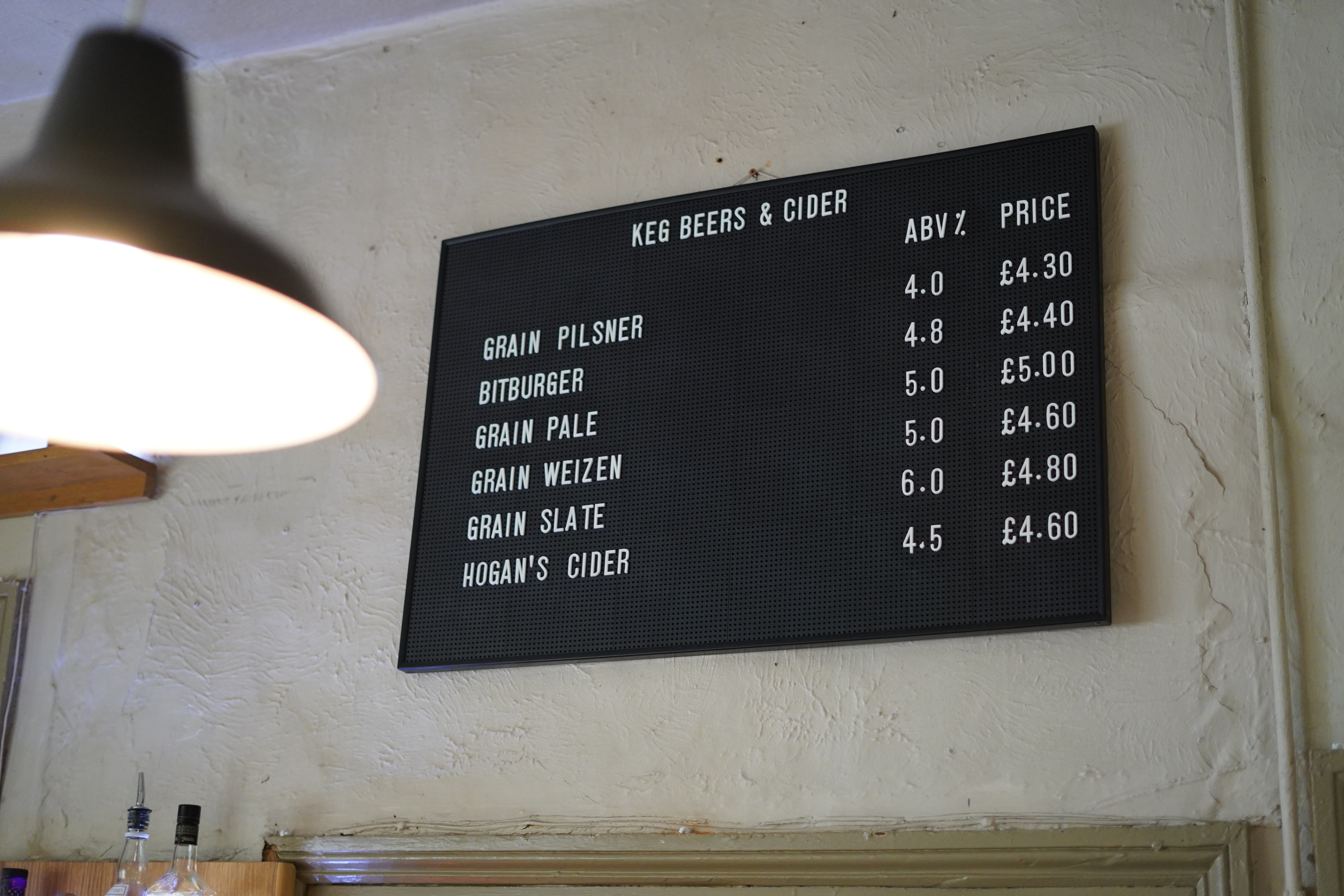
And it’s that attitude that has carried the team onwards since starting in 2005. Getting their heads down, making a good product and offering a positive environment to enjoy it in.
“We’re not particularly money driven,” says Wright. “We wanted to do something better with our lives, be our own bosses and do something we’re proud of. We believe in slow growth and doing things the right way.”
Halls laughs: “Don’t get me wrong. I’m constantly frustrated and our meetings are mostly lively. But we wouldn’t have it any other way!”

